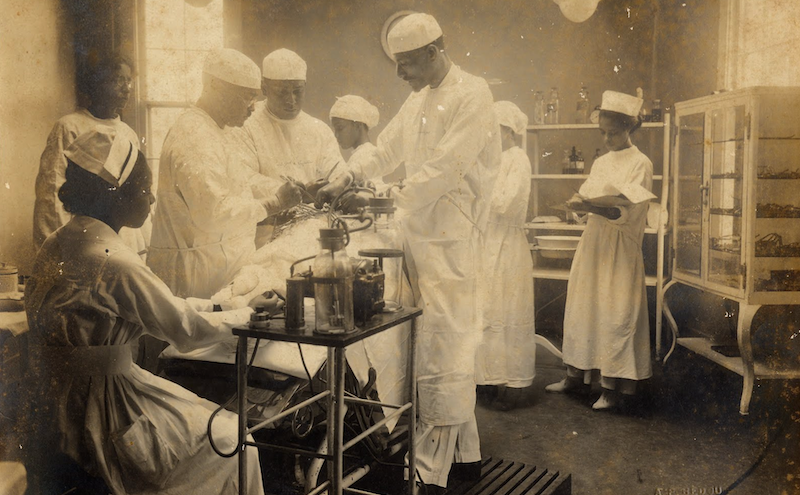The Influence of Historically Black Colleges and Universities and the Divine Nine on Black History
Hancock Whitney recognizes the impact of HBCUs and the Divine Nine during Black History Month.
2 min read


Regmon Chaney
February 6, 2026 |
HBCUs and the members of the National Pan-Hellenic Council (NPHC), also known as The Divine Nine (D9), have played a transformative role in shaping Black history and culture in America. These institutions have been instrumental in providing educational opportunities for Black students in the face of systemic exclusion. They have served as incubators for fostering leadership, activism, and social progress.
Since the 19th century, HBCUs have been at the forefront of shaping Black professionals, scholars, and leaders. Beyond academics, HBCUs have instilled a deep sense of community, cultural pride, and social responsibility among their students. As a result, HBCU have cultivated generations of change-makers impacting various sectors, including politics, business, entertainment and social justice.
|
“HBCUs offer challenging programs and are incredibly diverse, welcoming students from all backgrounds. They have a rich history of providing quality education and empowerment to marginalized communities, producing leaders who go on to excel in various fields. The sense of community, cultural pride, and support at an HBCU is unparalleled, and these institutions continue to make a significant impact on society by developing confident, resilient leaders.” |
Arian Pierre |
Parallel to the educational foundation, the Divine Nine have also been instrumental in promoting leadership, service, and advocacy throughout their global footprint. These organizations have provided lifelong networks of support while driving social movements, voter engagement efforts, and community upliftment. In order of the date of their founding the Divine 9 includes:

|
“Our (Omega Psi Phi’s) cardinal principles are Manhood, Scholarship, Perseverance and Uplift and I embody those principles day in and day out and I can proudly say it started with my parents. As I continue my professional career, Omega Psi Phi continues to play an integral part in my life. We have members in all kinds of industries, just like the other Divine Nine fraternities and sororities. Choosing to become a member of Omega Psi Phi shaped my professional career to what it is today. A professional that will work hard day in and day out, one that is willing to help others out when needed, and one that will see all task to its final completion.” |
Trevor King |
 |
“I am immensely proud of the values instilled in me by my HBCU, where I had the privilege of interacting with individuals from diverse backgrounds, enriching my knowledge and broadening my perspective. During my introductory business class, Introduction to Business, my professor emphasized our role as future leaders and urged us to embody that aspiration in all aspects of our lives.” |
|
James Banks |
Hancock Whitney is committed to recruiting outstanding talent from schools across our footprint, including HBCUs. We support career readiness programs, financial education workshops and more. Most recently, Hancock Whitney was proud to participate in the HBCU Legacy Bowl Career Fair. The career fair was part of a week-long celebration showcasing Black culture, history and the best NFL draft-eligible football players from HBCUs.
In January, we were also proud to host a networking event at the Pelican’s “HBCU + Divine 9 Night”. This event served to celebrate the influence of both HBCUs and the Divine 9 on Black culture and beyond. Although we recognize the impact of HBCUs and the Divine 9 during Black History Month, the influence of these organizations/institutions are not just historical – it is a living legacy that continues to empower and uplift future generations.
Explore more Insights
Get financial insights delivered to your inbox
Sign up to receive regular updates from our team of experts.







.png?width=159&height=159&name=Arian%20Pierre-Circle%20Frame%20(2).png)



